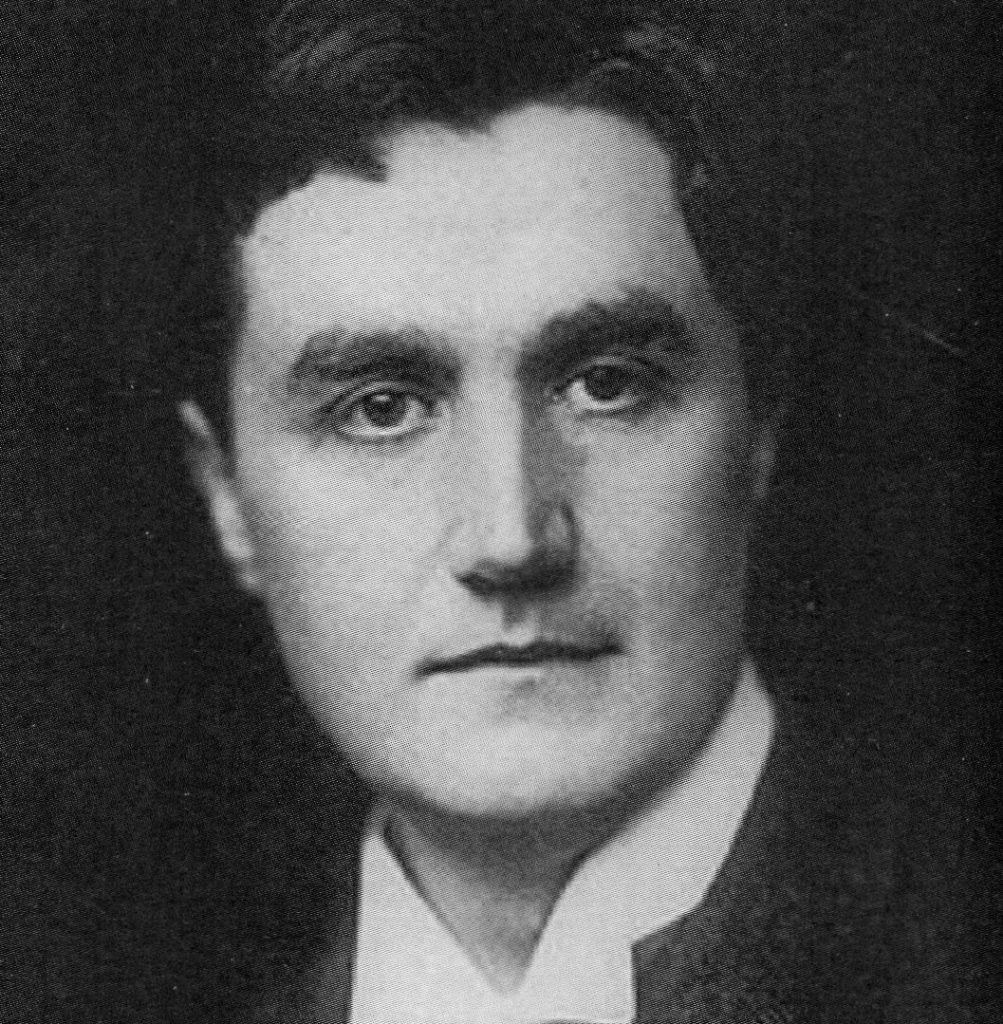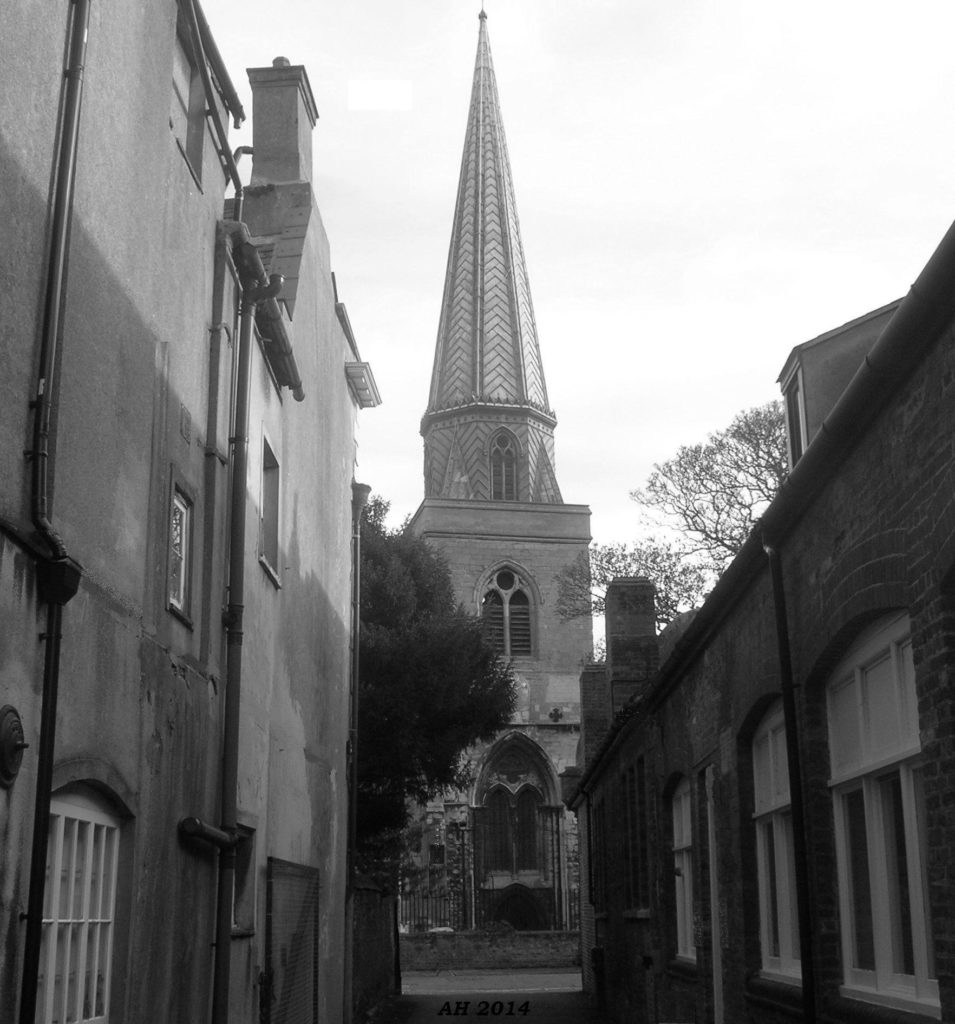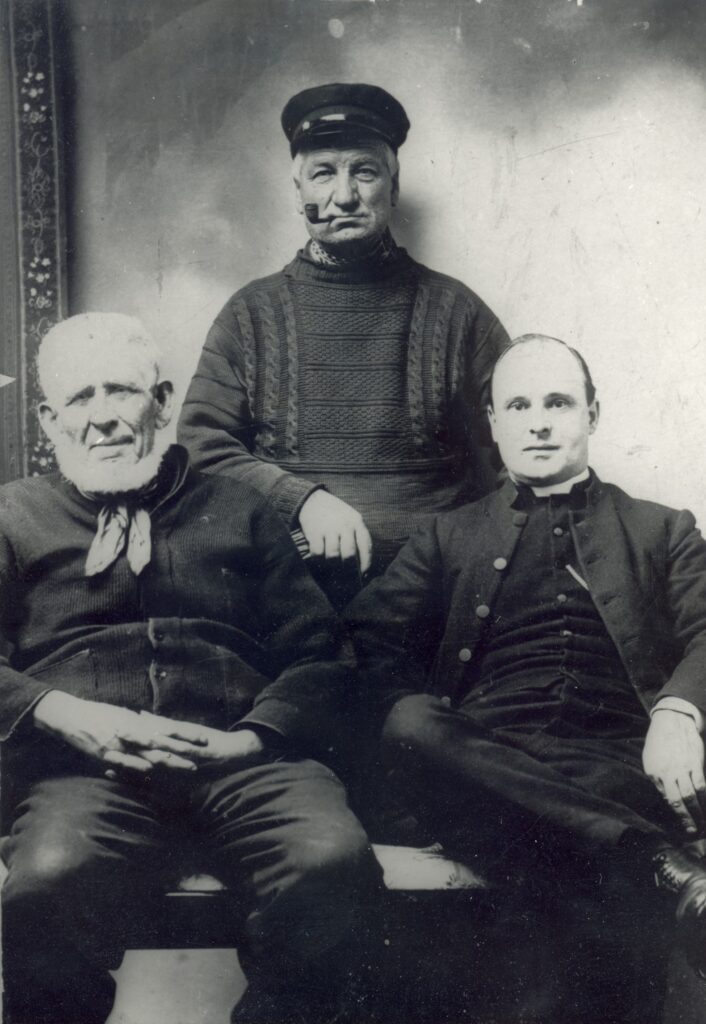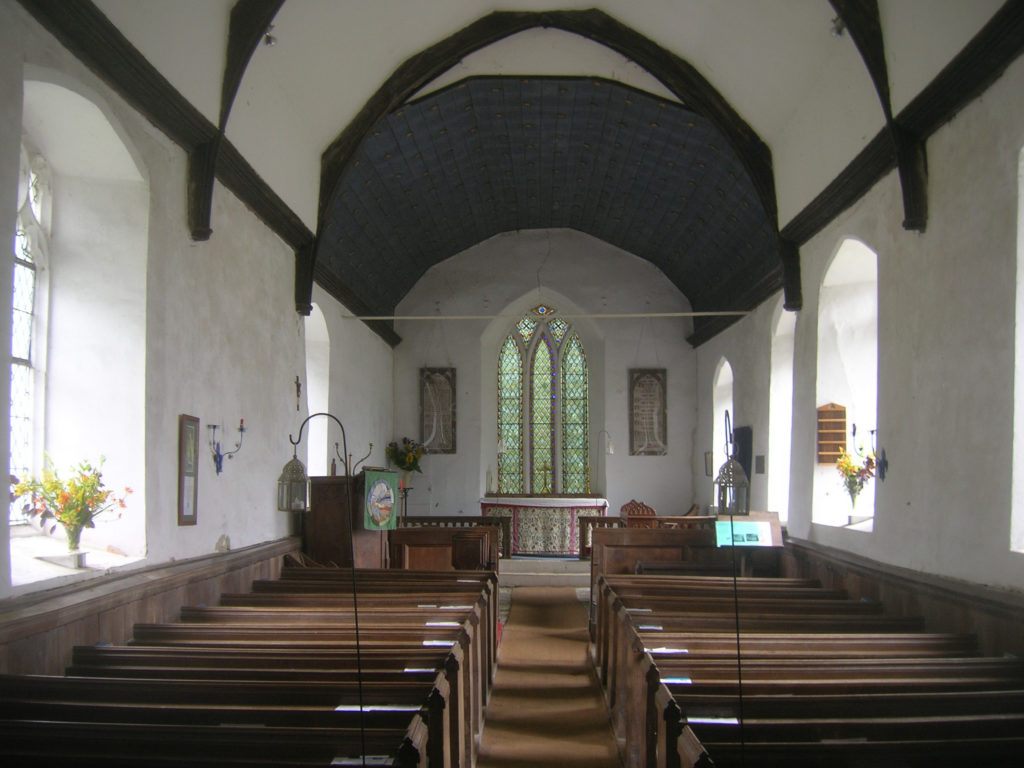Curate, St Nicholas, King’s Lynn 1901-1907
Vicar, St Margaret and St Andrew, Ilketshall
In a quiet but remarkable way Alfred Huddle pulls together several threads of other people’s stories and two St Nicholas’s, yet he was an otherwise unremarkable clergyman. At least nothing has survived to prove otherwise.
The story begins in the Norwich parish of St Giles on the Hill with the birth of Henry Stonex in 1823 and of Mary Tilney Bassett in the same parish 11 months later. These two would marry in 1851 and produce their first child, Mary Gertrude, a year later. She would go on to marry Alfred Huddle, 11 years her junior, in 1893.
In London, meanwhile, Alfred Charles Huddle was born in 1840 in the parish of St George, Hanover Square. Before he was ten however, he was sent, with his younger brother Robert, to live with their aunt and uncle in Bath where Alfred Charles became a harness-maker by the age of 20. He married Hannah Smith in Bath in 1862, and their first child, Alfred, the subject of our story, was born there in 1863. By 1867 the family had moved to Portsea, Portsmouth, where Alfred’s sister Alice was born that year.
Back in Norfolk, Henry Stonex, studied the organ at St Peter Mancroft in Norwich and was then apprenticed to Zechariah Buck at Norwich Cathedral. Next. he took up the post of organist at St Nicholas, Great Yarmouth which he held from 1850 to 1894.
The Tilney Bassetts had moved outside the City walls by 1841 and were living in the growing parish of Heigham, but in 1851 the two families were joined as Henry Stonex wed Mary Tilney Bassett in Norwich. Mary Gertrude Stonex arrived in 1852 while her parents were living in Regent Road, Great Yarmouth, and 4 more children were born in the next 10 years, including her sister Edith Bassett Stonex in 1860.
In the 1871 census Alfred Huddle, the future North End Curate was aged 7, and his sister Alice were with their mother and father, by now a saddler living in Portsea while Gertrude, aged 19, was at home at 34 Regent Road, Gt Yarmouth with 3 younger siblings and their parents. Gertude’s uncle, Francis T Bassett, was by now a priest at Bathwick, Bath, not far from where Alfred Huddle junior was born. We don’t know when the Bassetts moved to Bath and we don’t know when the Huddles moved from Bath to Portsea, so we can’t be sure whether Alfred, son of a saddle-maker, and Stuart Bassett the vicar’s son, both born in 1863, ever met, but as Stuart was the son of the minister and Alfred later took holy orders it is entirely possible that they did in those first 8 years of their lives. Certainly Alfred and Francis were to meet again, but possibly not until 1891.
Alfred Huddle was working as a saddler in Portsea in 1881 but made a dramatic change and took Holy Orders. The fact that he was not from the landed classes meant that, unless he was funded somehow, he would have had financial difficulties, but he lived in Ayherst Hall, Cambridge which was set up for non-collegiate students by the Reverend William Ayerst in 1884. In 1896 Ayerst Hall had to close due to lack of funds so Alfred was fortunate as he must have begun studying in 1885 in order to be made BA and Deacon and then Curate at Holy Trinity, Birkenhead in 1888. He moved to a new post at Chester in 1889.
Now comes a very interesting year for the 27 year-old Alfred. At some point he moved from Chester to take up the position of Curate at All Saints, Leyton in Essex but we don’t know whether this was before or after his marriage to the 38 year-old Mary Gertrude, and the most surprising thing of all was that this wedding took place not in Leyton or in Great Yarmouth, but in Dulverton, Somerset. The cermony was carried out by the vicar there, none other than Mary’s uncle Francis Bassett. The witnesses were Mary’s sister Alice and either her brother or her father, both of whom were called Henry Stonex. I suspect the brother as it might seem that Henry père was not in favour of the marriage. Probably present though was Stuart Bassett, son of Francis, successor to him as parish priest in Dulverton and possible boyhood friend of Alfred.
Whatever the mysteries of that occasion, Alfred and Mary went back to either Chester or Leyton then in 1897 made their home in Buckhurst Hill, Essex when Alfred became Curate at St John’s. Mary’s father died in 1897 aged 74 and sadly Mary, followed him in 1898 at the early age of only 45 or 46. They had only 7 years together with no record of any children born.
Also in 1897 the 25 year-old Ralph Vaughan Williams wed Adeline, his first wife, honeymooned in Berlin and next year moved into 10, Barton Street, behind Westminster Abbey in London.

In the 1901 census, taken on March 31st that year, Alfred is a widower living in 2 rooms in Buckhurst Hill. Edith Bassett Stonex, the late Mary Gertrude’s sister is a school mistress possibly in, though certainly visiting, Great Yarmouth, while at North Wootton, near King’s Lynn, living in a cottage on the marsh is the Woodfield family. Father Richard was a horseman; his wife, Mary Ann, was born in Lynn and they had 5 children living with them, all born there, including Florence, aged 8.
On Sunday April 14th Alfred Huddle took his first service as Curate at St Nicholas, King’s Lynn. It’s too long a story to go into here but St Nicholas, though a large building, has never had greater status than a Chapel of St Margaret’s, so the priest there has always been a Curate, not a Vicar or Rector.

Alfred, living in the Tuesday Market Place, had been in the parish for just under 4 years and was aged 41 when a 32 year-old Vaughan Williams arrived in the town looking for folk melodies for his classical music pieces – melodies that encapsulated the national spirit he searched for as themes for his compositions.
It was a fortunate meeting. Vaughan Williams had been noting folk songs for a year and we do not know for sure why he came to Norfolk – to Tilney All Saints and St Lawrence first and then King’s Lynn for a week. We have no detailed knowledge of his plans (if he had any), but the King’s Lynn Advertiser of Friday 23 September 1910, reporting on a meeting of the National Convention of Choirmasters, School Teachers and Music Teachers at Norwich on Friday 16th inst. wrote:
‘After visiting the country places around, and getting nothing, he was about to leave the district in despair, when a curate at King’s Lynn asked him if he would like to see the fishing people in the North Town.’
This led Vaughan Williams to meet ‘Duggie’ Carter, Joe Anderson and others both in the North End and in the Exton’s Road Workhouse. The full details, including all songs with tunes and words, are in the CD ROM Vaughan Williams in Norfolk – the 1905-6 Collections from King’s Lynn, a copy of which is held by True’s Yard Museum, the EATMT, and by King’s Lynn Library. It is also available as a download from mustrad.org.uk.
Like so much to do with Vaughan Williams we do not know to what extent Alfred Huddle may have conducted Vaughan Williams himself. Quite likely ‘Duggie’ Carter was involved in leading the young composer to other singers round the convoluted streets and yards of the 1905 North End. Vaughan Williams visited the North End and the Exton’s Road Workhouse on Monday, Tuesday and Wednesday that week, took a train journey to Sheringham on Thursday and noted a remarkable 17 songs in the North End on Friday. He stayed at the Temperance Hotel on Blackfriars’ Road and he wrote a letter from there on Sunday 15th to cousin Ralph Wedgwood. Alfred Huddle took two Baptism Ceremonies on Friday 13th (Elsie Hammond and George Foreman) and the 8.00 Communion, 11.00 Matins and 3.30 Catechism Class on Sunday 15th, so the two could have met again to say goodbye though Alfred was clearly busy.

Alfred was still Curate on Saturday September 1st 1906 when Vaughan Williams made a one day return to Lynn from Cambridge, but there are few details other than the tunes noted, and no indication that the two met on that day. Alfred took 3 Services, presumably in St Nicholas the day after, so he was probably in the North End on the Saturday.
Alfred Huddle’s farewell sermon was preached at Evensong on Sunday August 25th 1907. His theme was ‘Spiritual Sowing and Reaping’ and the text was taken from Galations 6.8b: He that soweth to the Spirit shall of the Spirit reap life everlasting. Earlier that last Sunday he had conducted both the 8.00am Communion and the 3.30 Children’s Service on a theme of ‘Christ blessing little children’, so he was working hard right to the end here.
Having been a Curate for some 19 years it is hardly surprising that we find Rev Huddle moving to Trowse, just south of Norwich in 1907 where, according to local historian Liz James, ‘he would have been under the eye of the Bishop in Norwich‘ and possibly benefitting from a close working relationship with his Vicar, the Rev. William Hudson Macnaughton-Jones MA who had been there since 1899. He was duly made Vicar of Ilketshall St Margaret in Suffolk which was then (1910) still part of the Diocese of Norwich. Ilketshall St Andrew was soon added to his cure.

Then came what must have been a tragic couple of years for Rev Huddle. First he lost his mother in Portsmouth in 1912. Then his servant, Florence Woodfield of North Wootton, who had joined him at Ilketshall some time before 1911, became pregnant at the age of 21 while still single. She married John Keable, a local man and presumably the father, in the local Wangford District. Within the Quarter of April – June 1914 Florence was wed to John, gave birth to baby Florence, lost the baby and then died herself in childbirth or soon after. There is no indication that Alfred was involved in any of the four ceremonies, but whatever must he have felt like having taken Florence so far from her home on the marshes north of Lynn and having to watch this tragedy unfold in his first solo parish?
Things didn’t improve much that year as in September war was declared and Rev Huddle, in his 50s, played a small part. Charlotte Paton, in King of the Norfolk Poachers, 2009, writes
‘A Reverend Huddle . . . was at Ilketshall St Margaret, a village close to Bungay. Possibly the local vicars took it in turns to serve with the Territorials.’
She was writing about Fred Rolfe, self-styled King. He joined the 5th Suffolk Regiment in 1916 and was employed as Rat Catcher at camps around Felixstowe, including Bawdsey where he and the current padre Alfred Huddle experienced a storm which blew all the tents down. Rolfe and other soldiers made up a rhyme which included the verse:
Our Mr Huddle the Clergyman was in a dreadful stew; he had found his suitcase gone, his gown and whiskey too.
I Walked by night, fred rolfe, 1935
So Alfred lost his bottle of Scotch as well as all the other tragedies!
Thanks to Lucy of bygonebeccles@gmail.com for introducing me to the next part of Alfred’s story.
Alfred Huddle married Florence P. Bullen in 1915. She was the widow of Harry R Bullen, a farmer & dealer and brought 2 children to the marriage: Joseph, born in 1907 (died 1964), and Iris, born in 1908. Alfred was 51 and Florence 27.
Alfred and Florence had a son in 1918 named Alfred Ulfketal Huddle. He appears to have disliked his name as he became known as Roy.
The Huddle family were still at the rectory at Ilketshall St Andrew in 1929 and left around 1930 when Alfred took up the post of Rector of Hasketon near Woodbridge.
Alfred’s father died, aged 79 at Portsmouth in 1920, and a year later his possible boyhood chum, Stuart Bassett died aged 69 in Blofield District which is not far from Ilketshall so the two could have been in contact still. His sister-in-law Edith Stonex, who had been his housekeeper since at least 1911, died at 77 years at Loddon in 1937, but Alfred, living at Hill House, Woodbridge by then and retired, died only in 1946 having seen another World War and his 83rd birthday pass. Florence survived him by 23 years.
Thanks to Elizabeth James, historian of King’s Lynn; Lucy at bygonebeccles@gmail.com; the staff at Norfolk Archive Centre, Norwich; the staff at True’s Yard Fisherfolk Museum, King’s Lynn; the staff at Norfolk Heritage Centre in Norwich Millennium Library,
Alan Helsdon, Norwich, October 2017 – January 2021.
For references/raw data used in this article see below.